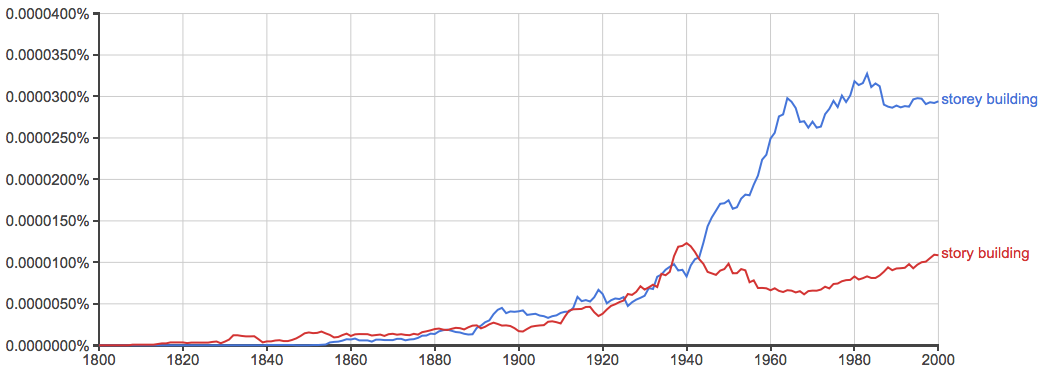One of the many differences between American and British English is the spelling of certain words. Words that mean the same thing are sometimes spelled differently in each language community, for a variety of historical and linguistic reasons.
Reasons aside, multiple spellings for the same word do not make life easy for writers. Much has been written about spelling differences between these two language communities, but in this article, I will focus on two words: story and storey.
What is the Difference Between Story and Storey?
In this post, I will compare story vs. storey. I will demonstrate the use of these words in at least one example sentence. I will also give you a memory tool to use when you can’t decide whether story or storey is more appropriate for your intended audience.
When to Use Story
 What does story mean? Story is a noun with two meanings. Sometimes, it means a tale of events.
What does story mean? Story is a noun with two meanings. Sometimes, it means a tale of events.
For example,
- I told a story about a man who played the piano and died.
Sometimes, though, story refers to a level or floor of a building. Some buildings have many stories, while some have only one.
For examples,
- I am moving to a fourth story apartment in a building with no elevator.
- The planned 100-story skyscraper will be the tallest building in Cuba.
- If you throw your toaster oven out of a 40th story window, it will no longer work.
- In the weeks leading up to the election, visitors at Trump Tower were subjected to bag checks and other screening but otherwise had free access to a five-story atrium that has shops and restaurants, including Trump Grill and a Starbucks. –US News and World Report
When to Use Storey
What does storey mean? Storey is an alternative spelling of the same word. It only has one sense, though. It is the preferred spelling in British English associated with the meaning a level or floor of a building.
As you can see from the chart below, the preference for storey over story in British English is relatively recent.

This chart isn’t scientific or exhaustive, since it only tracks frequency of use in books written in English since 1800. It isolates the words’ architectural sense by tracking the phrases storey building and story building.
A British person might use the word storey this way:
- I hailed the lorry from my window on the second storey.
- A 62-storey skyscraper – on the site of a previously planned building known as the Pinnacle or “Helter Skelter” – is to grace London’s skyline despite the uncertainty caused in the commercial property market by the vote for Brexit. –The Guardian
The plural of storey is storeys.
Trick to Remember the Difference?
 Here is a helpful trick to remember storey vs. story.
Here is a helpful trick to remember storey vs. story.
It is not difficult to remember when to use each of these words. In American English, story refers to a floor in a building. In British English, the word is spelled storey. Since storey and England both contain the letter E, it is simple to keep this usage straight in your head.
If you are referring to a tale of events, you must choose story. Storey is not used in this way.
Summary
Is it story or storey? These spellings refer to the same thing, but they are used in different regions of the English speaking world.
- Story is the American English word for a level of a building.
- Storey is the British spelling of the same word. The British began spelling storey as such in roughly the 1940s.
Story also means a tale of events.
Since storey and England are both spelled with an E, remembering that storey is for British audiences should be a simple feat.
To summarize: story is prevalent in American English. Storey has become the standard British spelling.
Contents
